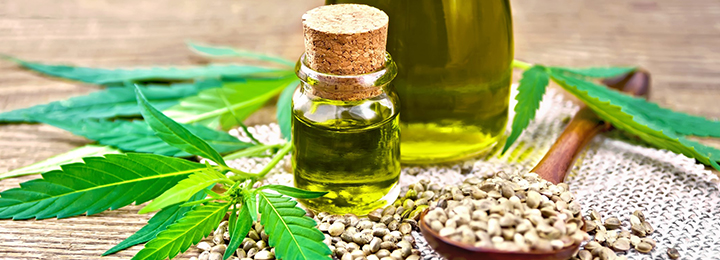With the uptake of consumer CBD (cannabidiol) products rising at record growth rates, the need to assure consumers of product safety and transparency is of elevated importance. The purpose of the FDA’s Scientific Data and Information about Products Containing Cannabis or Cannabis-Derived Compounds public hearing on May 31, 2019 was to give consumers, academia, manufacturers, health care professionals, and other constituents the forum to share their knowledge and/or point of view on CBD, along with their input and/or recommendations to the FDA. Based on the presentations and comments made by manufacturers, Kline’s top three takeaways are as follows:
- FDA is empowered to enforce and ensure that CBD manufacturers are compliant with current good manufacturing practices (cGMP).
- FDA should ensure safe concentrations and daily intake levels of CBD and specifically THC.
- FDA guidelines in place should be used for packaging and labeling (for food, dietary supplements, and cosmetics).
David Spangler, the Consumer Healthcare Product Association’s (CHPA) senior vice president, policy and general counsel, reinforced the trade association’s desire for public safety, product quality, and informed consumers related to CBD products. He also stated that medicines containing CBD should follow the regulatory status quo, while asking that the FDA provide a lawful pathway for makers of dietary supplements that contain CBD this year. Using existing New Dietary Ingredient (NDI) regulations manufacturers would need to prove safety of their CBD products. Spangler stated, “Those NDIs would still need to meet the standard of sufficient information to provide reasonable assurance the ingredient does not present a significant or unreasonable risk.”
Enforce Current GMP Standards; Need for cGMP
Specific GMP standards are established for food, dietary supplements, nonprescription drugs, and cosmetics, and the FDA has the authority today to ensure that these standards covering safety, quality, and consistency are being met. Noramco, one of the presenting manufacturers at the hearing, cited a JAMA study that found 69% of 84 cannabidiol products to be mislabeled – which resulted in 14 warning letters in 2017. This reinforces the need to make sure all manufacturers are GMP and ideally cGMP compliant. Noramco further recommended that the FDA work with the USP to formulate manufacturing standards for pharma grade and dietary supplement grade CBD ingredients – with testing to ensure identity, purity, quality, and strength. CV Sciences, also a presenter at the FDA hearing, outlined its view on the scope of regulatory needs for CBD-based dietary supplements, including:
- Scope of allowed hemp-derived ingredients
- NDIN (new dietary ingredient notification)
- cGMP, labelling and claims, and adverse event reporting
CV Sciences is one of many CBD suppliers analyzed in Kline’s recently published Consumer CBD Products: U.S. Market Analysis and Opportunities report.
Set Limits on THC Levels Based on Safety Data; Pursue NDIN
Most manufacturers at the FDA hearing referenced consumer CBD products with tetrahydrocannabinol (THC) levels of less than or equal to 0.3%, which is the amount present in hemp-derived CBD products and is considered not psychoactive at this concentration. Noramco, which produces synthetic CBD, recommended limiting THC to 0.1%, which aligns with the WHO recommendation and the level of THC in the only FDA-approved prescription drug that contains CBD – Epidiolex by GW Laboratories for epilepsy.
Conference participant and presenter Greenwich Biosciences’ point of view was that the FDA should identify safe concentrations and daily intake levels for supplements and foods encompassing:
Safety margin to cover known and unknown safety issues
- Vulnerable populations (children, pregnant women)
- High consumer demand and likelihood of cumulative exposure
It was further noted by event participant Mile High Labs that each cannabinoid should be evaluated separately, adding a layer of complexity for the FDA as it considers developing safety data and standards given that there are more than 100 cannabinoids that can be derived from the cannabis sativa plant such as CBD, CBG, CBN, THC, THCa, and many others.
In summation, Kline’s point of view is that pursuit of the NDIN is the clear path forward to establishing CBD safety for dietary supplements and GRAS status for food products.
Packaging and Labeling Per Current FDA Guidelines
Requirements for food, dietary supplements, and cosmetic products are established by the FDA and essentially limit marketing claims to sensory types (e.g. taste, aroma) for food and cosmetic products, and structure/function for dietary supplements. Kline researched marketing claims for its Consumer CBD report and found the following:
- Most CBD products (including those by CW Hemp and CV Sciences) are not currently making claims and have positioned their products as dietary supplements.
- Brands rely on published literature, social media, and word-of-mouth recommendations to inform consumers of CBD possible usage areas.
- Some brands, such as IrieCBD Pain, make overt product claims on their packages.
- Others, such as CBDFx, make claims on their website but not their packages.
- Still others, such as Endoca, do not make claims but make recommendations based on consumers’ input about therapeutic needs on their website.
Further details on Kline’s Consumer CBD Products: U.S. Market Analysis and Opportunities report can be found via www.klinegroup.com (contact josh.mullenax@klinegroup.com). Kline provides management consulting services to current and potential participants in the CBD and cannabis markets covering market strategy, supply chain, and go-to-market strategy (contact susan.babinsky@klinegroup.com).

